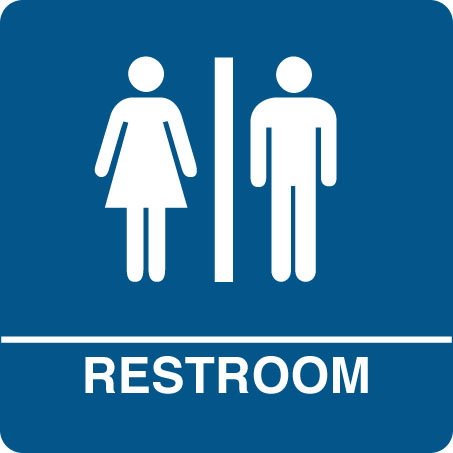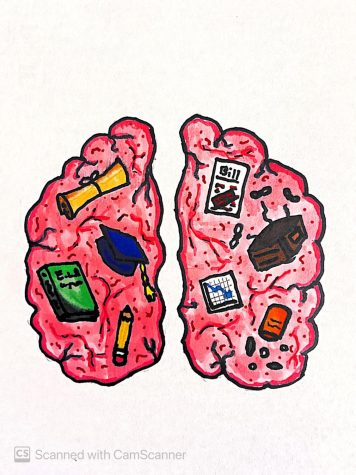Bridging the gap between generations
 The word “millennial” has become like a curse word recently, labeling the generation that is, without question, the most hated in America. Generation Z is the youngest generation in America right after Millennials, and has yet to be firmly established thus far. Since the upper end of Gen Z is so close to Millennials, stereotypes are pushed on them, too, whether they like it or not. Not only is it annoying, but it also forces all teenageers and young adults into a category that labels them as useless, self-centered, and entitled. However, as much as teenagers would like to stick all the blame on parents and grandparents who call this generation “good for nothing,” both sides have some things to fix before the division between generations is erased.
The word “millennial” has become like a curse word recently, labeling the generation that is, without question, the most hated in America. Generation Z is the youngest generation in America right after Millennials, and has yet to be firmly established thus far. Since the upper end of Gen Z is so close to Millennials, stereotypes are pushed on them, too, whether they like it or not. Not only is it annoying, but it also forces all teenageers and young adults into a category that labels them as useless, self-centered, and entitled. However, as much as teenagers would like to stick all the blame on parents and grandparents who call this generation “good for nothing,” both sides have some things to fix before the division between generations is erased.
Depending on what study you look at, Millennials were born somewhere between 1980-2000. The United States Census Bureau classifies them as individuals born between 1982 and 2000, while the New York Times says 1980-1995 based on studies to make room for the newest demographic: Generation Z. The group is so recently defined that major media and business outlets are divided on when exactly they were born and when exactly to cap the generation. Regardless of exact dates, Gen Z is the newest research ground for marketers, but since the youngest of the demographic are toddlers, it is hard to classify their habits this early. Older teens in high school and the beginning of college are easily grouped into the millennial category.
The previous generation is likely your parents’ generation: Generation X, born anywhere from 1965-1984 according to the Harvard Center. Before them, you’ve got the Baby Boomers, who were born between 1946 and 1964 according to the Census Bureau. According to the Census Bureau, Millennials top the charts at 83.1 million–about a quarter of the nation’s entire population. The boomers come in at about 75.4 million in comparison.
When you take inventory of all the stereotypes conjured about the most hated generation, look no further than your Google searchbar. Type in “Millennials are” and you’ll get phrases like “Millennials are lazy,” “Millennials are entitled,” “Millennials are stupid,” and “Millennials are killing everything.” Gen Z has earned the title the ‘Millennials on steroids’ by Business Insider. What is often left out are some of the positive statistics that prove not all of America’s young people are “worthless.” According to Walden University, 81 percent make charitable contributions of some kind. 75 percent also see themselves as unwilling to compromise for family and values, according to Bentley University’s Center for Women and Business. The are also on track to becoming the most educated generation in history according to Pew Research.
The real tragedy is that both of the young generations today believe negative stereotypes about themselves at a very personal level. As proof, a recent study by the Pew Research Center has found that 59 percent of Millennials say that the term “self-absorbed” describes their generation, compared to only 30 percent of Gen X and Boomers. It’s one thing for someone to label themselves as self-centered and narcissistic, but it’s an entirely different matter when an individual is willing to label all of their cohorts–an entire generation– as part of the stereotype. It’s no wonder why most Millennials identify with other generations, or none at all. According to the same study, only 40 percent of those born in the millennial time frame are willing to associate with their generation, and a whopping 33 percent will tell you that they belong to Gen X when they are clearly past the cutoff. Even among the youngest segment of millenials (18-22), only 45 percent will admit to being part of the infamous generation.
But have they earned the stereotypes? According to Harvard University, only six of ten Millennials have jobs–half of which are part-time, and 31 percent live with their parents. According to Time, Millennials have grown up receiving so many participation trophies that 40 percent believe that they should be promoted at work every two years regardless of performance, and 58 percent test higher on a narcissism scale than in 1982. Even though it is not right for anyone to stereotype or judge books by their covers, these statistics are enough for some people to make a conjecture about Millennials that isn’t necessarily positive.
Since stereotypes are formed when a certain group has a common characteristic, Millennials and Gen Z’ers need to live differently to shake off the negative phrases they’re tired of hearing. They need to move past what people have called them since the turn of the century to make their lives count for something using their redeeming qualities.
Also, ask any any Gen X’er who they go to if their Word Document isn’t cooperating, and you can bet money it will be someone in the Millennial or Gen Z age bracket. As the undisputed kings and queens of technology, and social media’s first native born populace, Millennials and Gen Z are the future of technology and engineering advancements. Rather than believing what people say about us, why not live in a way that makes a difference in the world? We can run circles around our parents with our iPhones; our affinity for technology is actually very useful. With so many stuck in the past and left in the dust by the digital age, these young generations have the potential to be the next innovators, scientists, entrepreneurs, and difference-makers. Instead of putting down the younger generations, Gen X should lend a hand in helping Gen Z and Millennials develop good work skills, and at the same time Millennials and Gen Z can pull Gen X and Baby Boomers into the 21st century.











